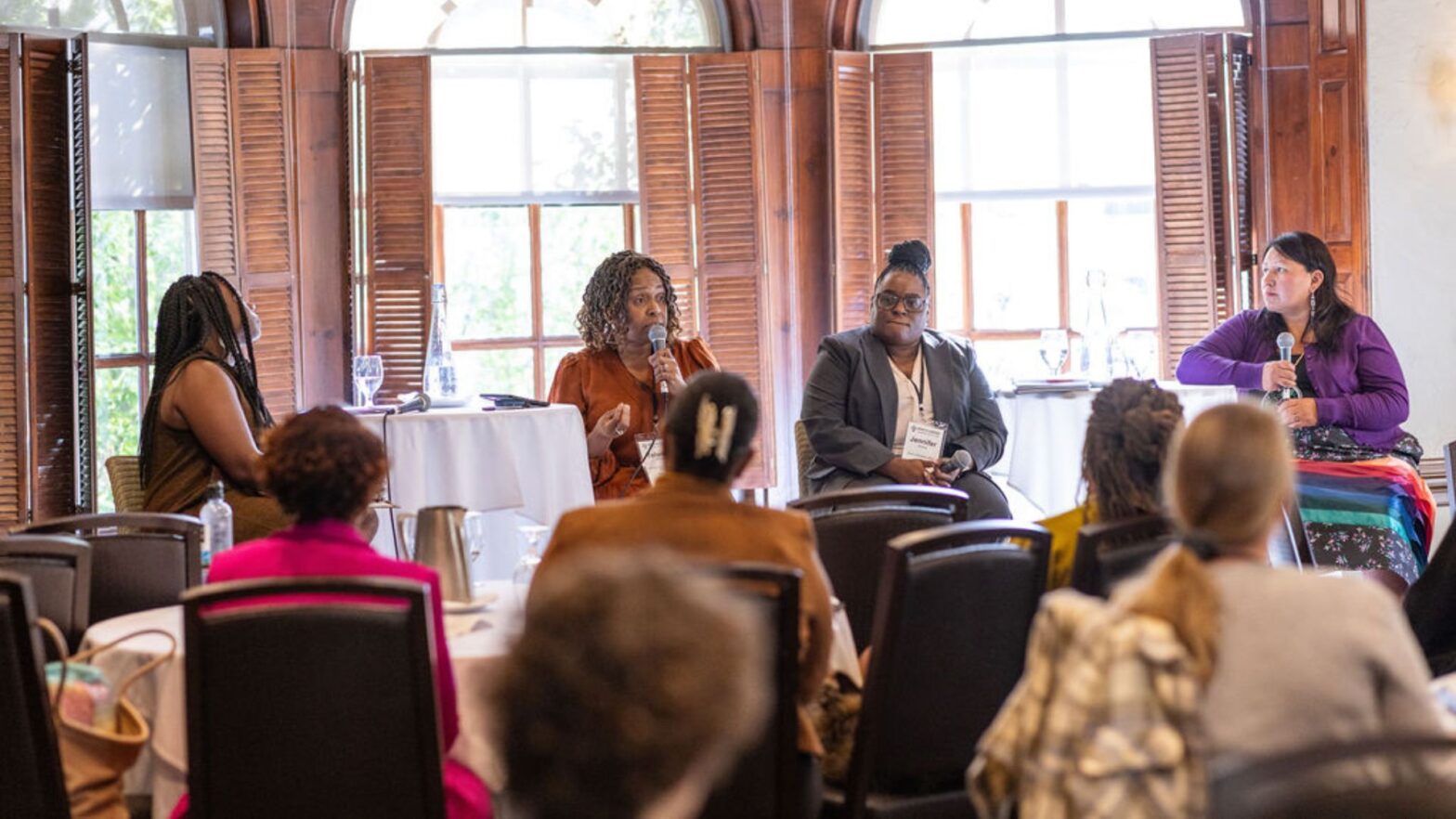“I always wondered, ‘Why doesn’t somebody do something about that?’ Then I realized I was somebody.”
– Lily Tomlin
Newman faculty member Yelando Johnson, Ed.D., LMSW, MBA, participated in the panel discussion “Allyship as a Leadership Skill: Supporting Underrepresented Colleagues” on Oct. 8 at Harvard University in Cambridge, Massachusetts.
With approximately 40 guests in attendance, Johnson and her fellow panelists discussed key literature and real-world examples of allyship in leadership, discussing what it means to be an effective ally in higher education and identifying the challenges and opportunities for leaders.
“Allyship is not just about supporting others, but also about using one’s position to challenge systemic barriers and foster more inclusive environments,” Johnson said.
The panel discussion was part of the two-day Women in Leadership: Higher Education conference sponsored by the National Diversity Congress.
Johnson, the director of Newman’s Master of Social Work program and an associate professor and division chair for social work, served as a panelist alongside Jennifer M. Horace, Ph.D. (assistant director and dean of the students office) and Carla Vige (director of tribal relations) of the University of Wisconsin-Madison. Alta Mauro, associate dean for inclusion and belonging at Harvard, chaired the panel.
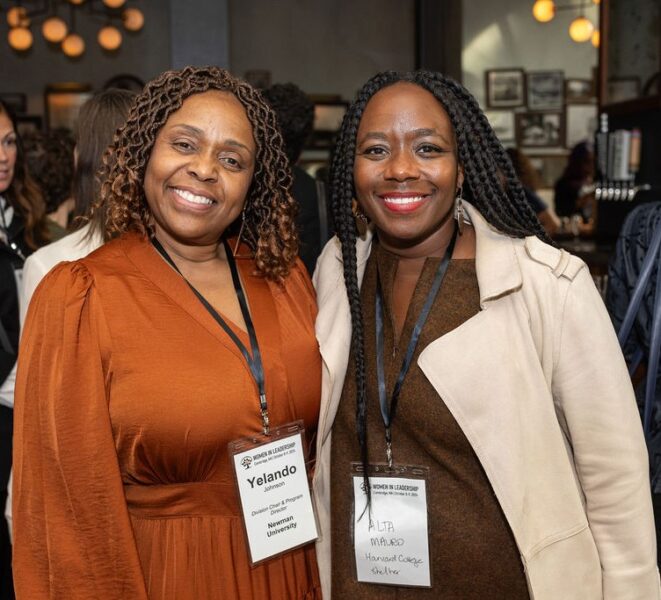
A reflective discussion
The female leaders addressed actionable strategies to apply when advocating for underrepresented groups, particularly those who historically face systemic inequalities in the workplace.
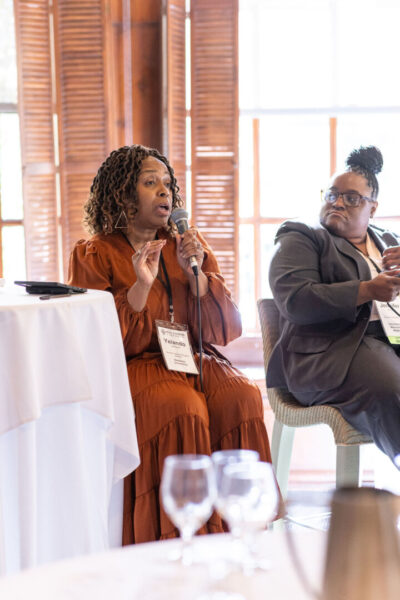
“This includes people of color, women, LGBTQ+ individuals, people with disabilities and those from lower socioeconomic backgrounds,” Johnson said. “We also touched on other forms of underrepresentation, such as first-generation professionals or individuals from non-dominant cultural backgrounds, as they often face unique challenges in accessing opportunities and support.”
Johnson shared that allyship “is not a passive, one-time gesture” but rather an ongoing responsibility to create meaningful change and advocate for policies that promote fairness and inclusion.
“Allyship is essential for creating inclusive, equitable and supportive environments where everyone can thrive,” she said. “We want to help create a culture where everyone feels valued and heard by ensuring underrepresented groups have equal access to opportunities, resources and professional growth.”
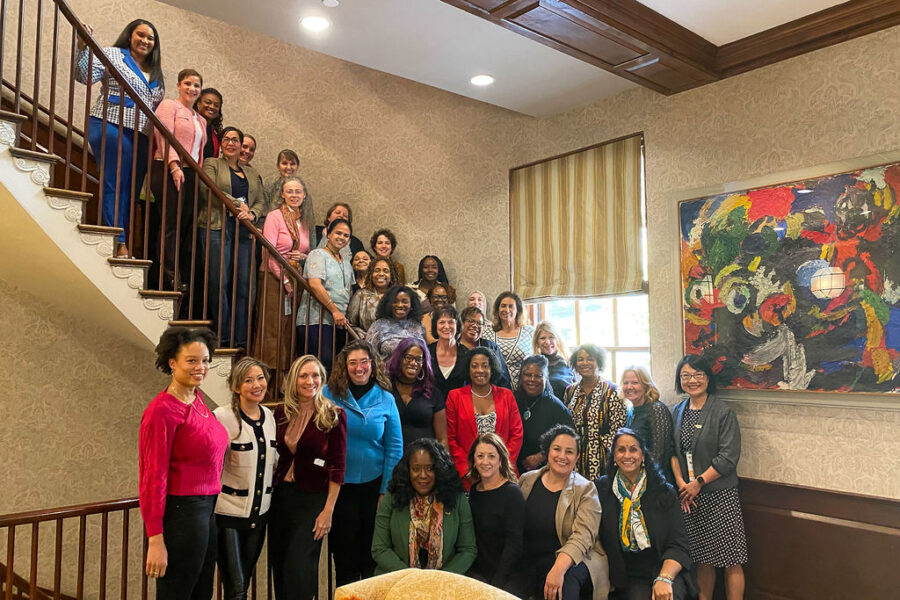
Woven into Newman’s core values
The Newman School of Education and Social Work prepares students to meet the social, emotional and educational needs of those they serve by celebrating diversity, spirituality and essential leadership skills.
“Our discussion around allyship tied perfectly into Newman’s core values of service, respect and social responsibility, and it was a privilege to share those principles with such a distinguished audience,” Johnson added.
Johnson initially thought she’d be unable to attend the conference because of the cost.
“Honestly, I almost turned down the opportunity because of the expense,” Johnson said. “But when I told my dean, Jessica Bird, about being selected, she immediately became my advocate. The professional development team even approved part of the cost as a special circumstance” since the amount exceeded the maximum level of professional development funding.
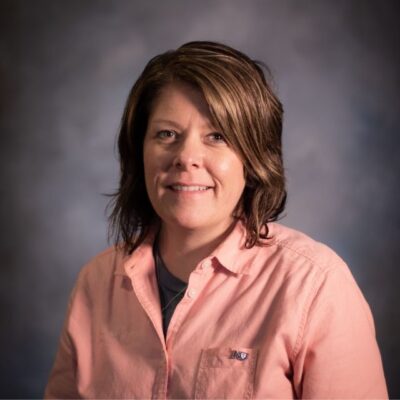
Bird, associate vice president of outreach education and dean of the School of Education and Social Work, always stresses the importance of advocacy and responsibility as a leader. She recognized the significance of Johnson’s selection and ensured she felt empowered to seize the opportunity.
“We rise together by supporting each other,” Bird said. “Dr. Johnson is an exceptional leader because she combines a deep understanding of her field with a true passion for supporting her colleagues, students and the mission of the university. She works tirelessly to ensure that faculty have the support they need to grow, and her collaborative spirit makes her a role model within our institution.”
A stellar support system
Fittingly, Johnson noted that Bird and Vice President of Academic Affairs Alden Stout are her allies who made it possible to participate in the once-in-a-lifetime experience.
“Leaders like Jessica Bird and Alden Stout demonstrate how deeply Newman’s values … are woven into the fabric of our work,” Johnson added.
Along with the Newman community’s pride, Johnson’s daughter was ecstatic for Johnson’s opportunity.
“When my daughter, Jasmine, found out about this opportunity for me, she was overjoyed,” Johnson said. “She bought her plane ticket even before I got the approval for the funding from Newman. Jasmine has always been my biggest supporter. She even reached out to the event organizers to ask if she could attend my session and record it. All the women at the conference warmly welcomed her for being so supportive of her mom.”
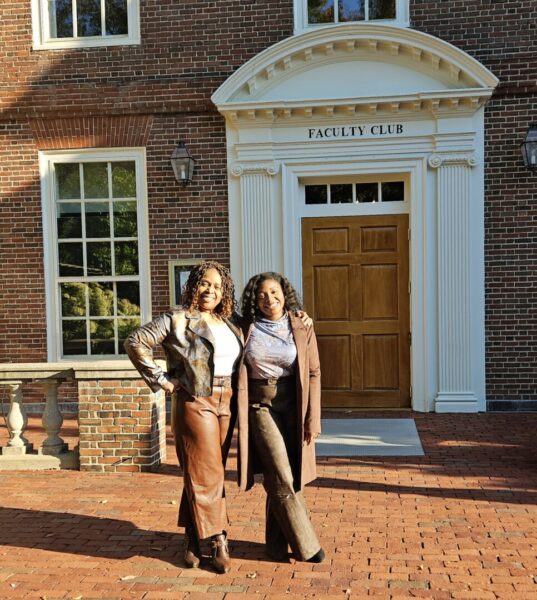
An ongoing effort and lifelong responsibility
Johnson described the panel as an “incredibly meaningful and empowering experience.”
Every person faces some form of adversity in his or her life. For Johnson, the conference and discussion with fellow leaders was a humbling opportunity to learn from others’ experiences and discuss practical strategies moving forward.
“It not only reinforced my belief in the power of allyship but also highlighted the collective strength that emerges when diverse leaders come together to address important issues,” she said. “Being part of this dialogue alongside such inspiring women was a deeply affirming reminder of the importance of leading with purpose, humility and a genuine desire to make a positive impact on those who have historically been marginalized.”
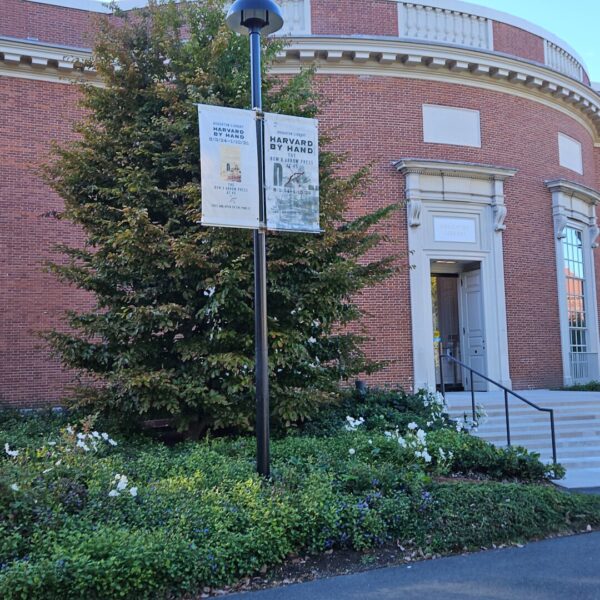
At Newman University, Johnson would love to see regular open forums or town halls for faculty and staff to explore issues related to diversity, inclusion and allyship, listen to experiences and brainstorm ideas for creating a more inclusive campus.
“Leadership is about relationships, trust and action,” Bird added. “Dr. Johnson models that to her students and colleagues perfectly. I’m honored to have her on our team, and I look forward to seeing the continued impact of her leadership, both within Newman and beyond.”
Newman University School of Education and Social Work
The School of Education and Social Work is continuing the legacy of preparing students to transform society in the Wichita area, throughout Kansas and across the nation.
